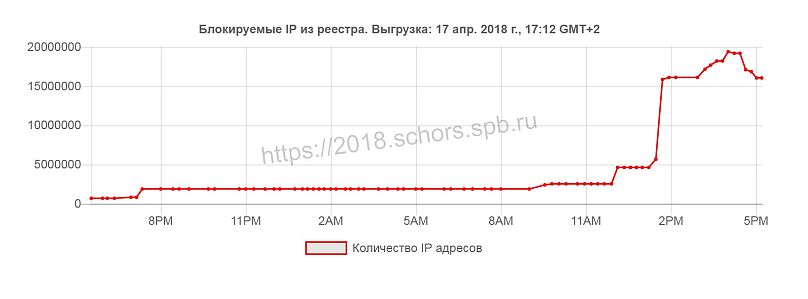The instant messaging service evades regulators implementing a court ban, while millions of IP addresses are blocked in the attempted crackdown.
 ADVERTISEMENT
ADVERTISEMENT
A clumsy attempt by the Russian authorities to block Telegram has taken many unrelated websites and apps offline – while so far the instant messaging service has continued operating.
Internet censors at Roskomnadzor, Russia’s telecommunications watchdog, have blocked at least 16 million IP addresses as they tried to implement a court order issued last Friday to ban Telegram. At one point the number blocked approached 20 million.
Major banks and online stores are among those caught up in the digital crackdown, as well as the messaging app Viber. All have reported malfunctions on Tuesday, the day after the state regulator began enforcing the court ruling.
The regulator’s own website appeared to have been affected as it too went offline – the reason was unknown but it led to speculation that it had inadvertently become tangled up in a net it had cast.
The authorities took action against Amazon and Google’s cloud platforms, which Telegram uses to avoid Russian state interference. However, many other Russian businesses use them too, and they suffered as millions of IP addresses became blocked.
The ban on Telegram followed the messaging service’s refusal to hand over encryption keys that would give the authorities access to private messages on its platform.
The Russian government had demanded access to investigate terrorist threats. Telegram has long been criticised for providing a messaging service that became known as the “app of choice” for drug traffickers and terrorists, in particular from ISIL.
However, the authorities’ action is being seen as an attempt to monitor online activity on a far wider scale. Roskomnadzor says it has blocked 18 cloud subnetworks under the Telegram ban and has sent formal letters to Amazon and Google, reportedly asking them to pull Telegram from their app stores.
Telegram’s CEO Pavel Durov has warned that banning the service could be counterproductive for Russia, as many users would switch – and pass their data – to US-controlled platforms such as WhatsApp and Facebook.
Russian users of Telegram had managed to bypass the ban via virtual private networks (VPNs) and proxy servers, Durov said. He has vowed to resist the attempted ban.
State-backed media have reportedly recommended people to switch to TamTam, a service operated by Mail.ru. Some analysts say the move is doomed to fail.
“These methods will not force people to use any certain product. We have picked Telegram not because the authorities recommended it, but rather since it is an exciting, well-built product with great functionality,” Moscow-based IT expert Anton Merkurov told Euronews. “Generally, you can’t force the public. Despite all the warnings, traffic is growing, the channel traffic is also up, no-one is leaving the market. The defence has worked and we are prepared to keep using Telegram”.















